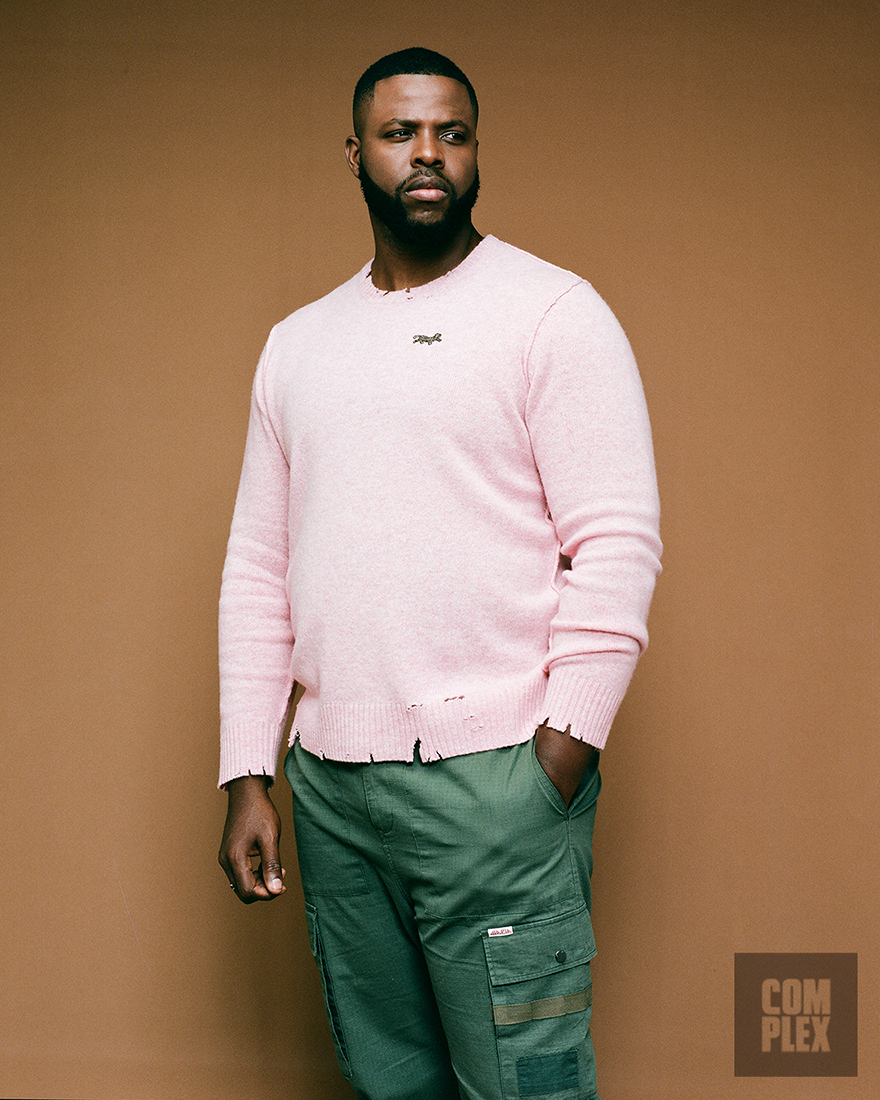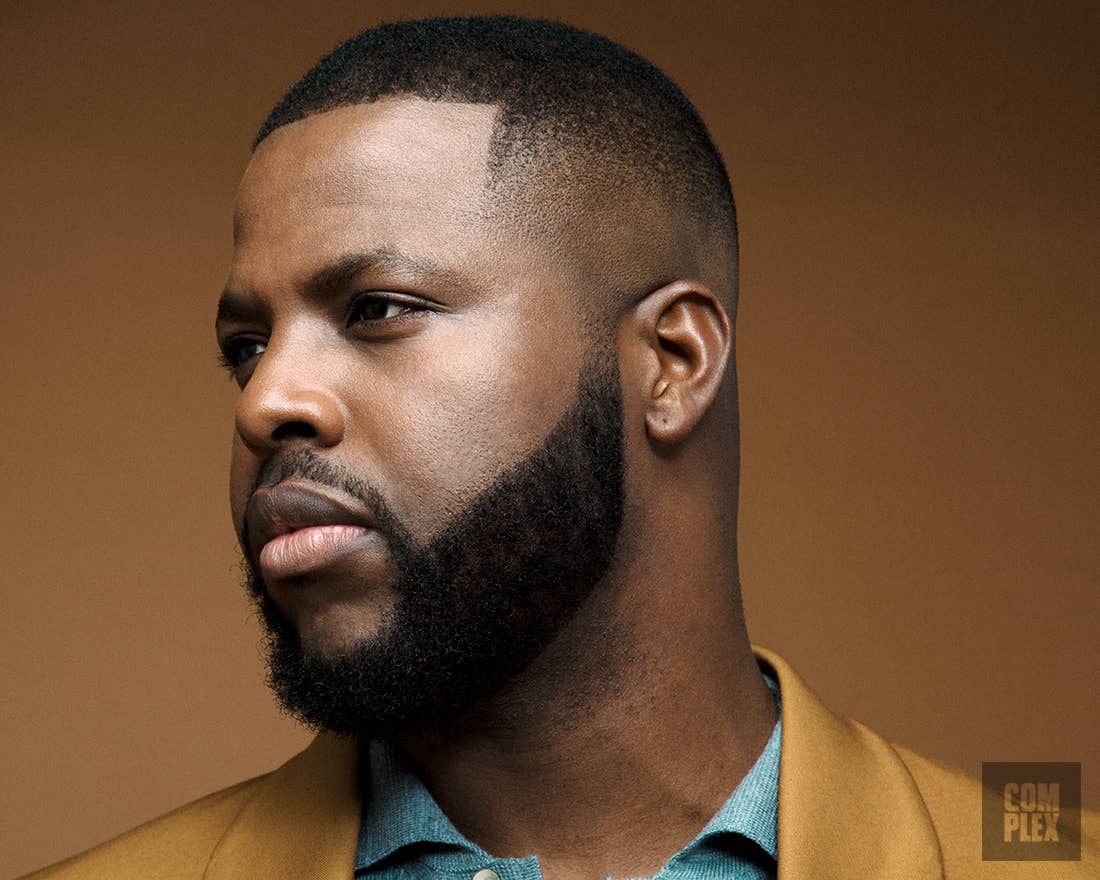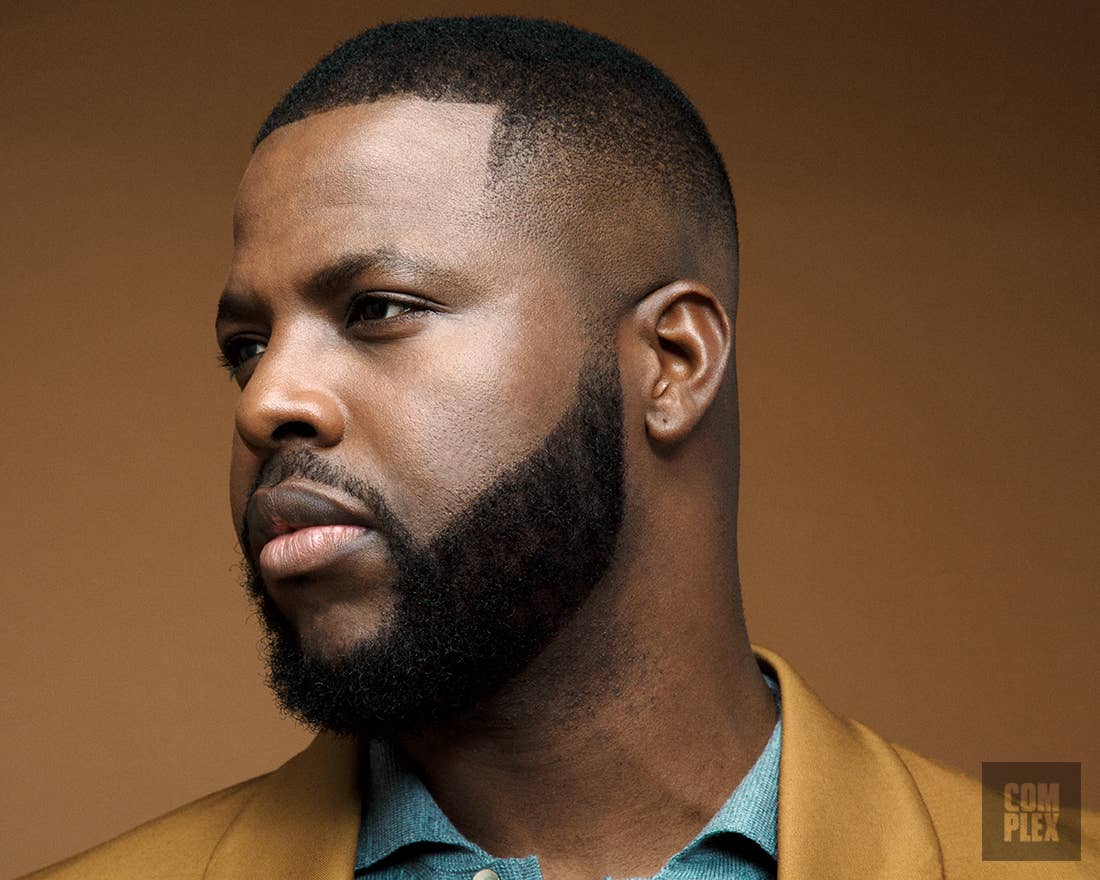
In Hollywood, as in life, timing is everything. Problem is, you can’t predict when the timing will be right; sometimes shit just falls into place, and you have a split second to decide whether you’re moving or letting opportunities pass you by.
Winston Duke is a perfect example. The actor, who you may know as M’Baku, the leader of the Jabari, in Ryan Coogler’s Academy Award-winning Marvel opus Black Panther, met Jordan Peele at the 2018 Oscars. Duke didn’t think much of the run-in, but that random encounter wound up being more serendipitous than maybe even he thought. “After he won his Oscar, [I] congratulated him, told him I was a big fan,” Duke says. “And then I saw him again at JAY-Z's afterparty and we chatted briefly. Then he called me about a week and a half later. My people were saying, ‘Jordan Peele’s trying to get ahold of you. He has some secret project.’”
The secret project was Peele’s Us, one of 2019’s most anticipated films, in which Duke stars as Gabriel “Gabe” Wilson, opposite Lupita Nyong’o as his wife, Adelaide. “I read [the script] in one sitting and immediately was like, ‘I’m doing this,’” Duke says. “There was not gonna be any reality where I didn’t do this project after reading it.”
Us tells the story of a family that is preyed upon by, well, itself. Winston’s character Gabe is the patriarch of the Wilsons, bringing his wife and two children (played by Shahadi Wright Joseph and Evan Alex) to spend some quality time at their beach house. That dream turns into a nightmare when the Wilson family meets a family of four (known as “the Tethered”) who look just like them but have sinister intentions.
But before Duke became a household name, the 32-year-old Tobago native had been putting together a solid resume. After completing an MFA in acting from Yale in 2013, he picked up small roles on series like Modern Family, Law & Order: Special Victims Unit, and Major Crimes. On the big screen, along with Black Panther, he’s been featured in Avengers: Infinity War, and is said to be part of the forthcoming Avengers: Endgame—that’s THREE Marvel films. And now, with a major role in Us, the follow-up to Peele’s genre-shifting Get Out, under his belt, Duke is on the precipice of superstardom.
“I read [the script] in one sitting and immediately was like, ‘I’m doing this.’ There was not gonna be any reality where I didn’t do this project after reading it.”
Us, Duke says during a visit to Complex in early March, is “at the core, a really great family story,” although this family’s tale takes a dark turn. The first trailer, released on Christmas Day, gave you the feeling that Duke’s character Gabe was kind of an everyman—think Clark Griswald from the National Lampoon’s films. Gabe’s the kind of all-American dad who wants to see his kids work hard to achieve their goals while making sure that his car is just as big (if not bigger) than his neighbors’. “He is a great father. He’s very loving,” explains Duke. “But he’s also flawed in the way that a lot of us are. So I don’t think he’s very [introspective]. He doesn’t look at himself deeply.”
Still, Us is a horror movie, and the idea behind it, Peele said when the first trailer came out, wasn’t to create a new monster but showcase that “we are our own worst enemies.” To that end, Duke, Nyong’o, and their onscreen children pulled double duty, portraying their own doppelgängers.
Gabe’s alter ego is Abraham, first seen menacingly lingering in the Wilsons’ beach house driveway. In spite of this, Duke hesitates to call Abraham evil. “I don’t judge my characters as good and evil. They’re just interesting people. Abraham is a version of Gabe, but a composite of many different experiences. And that’s why I never judged him, because he’s an antagonist. He’s not a villain.”
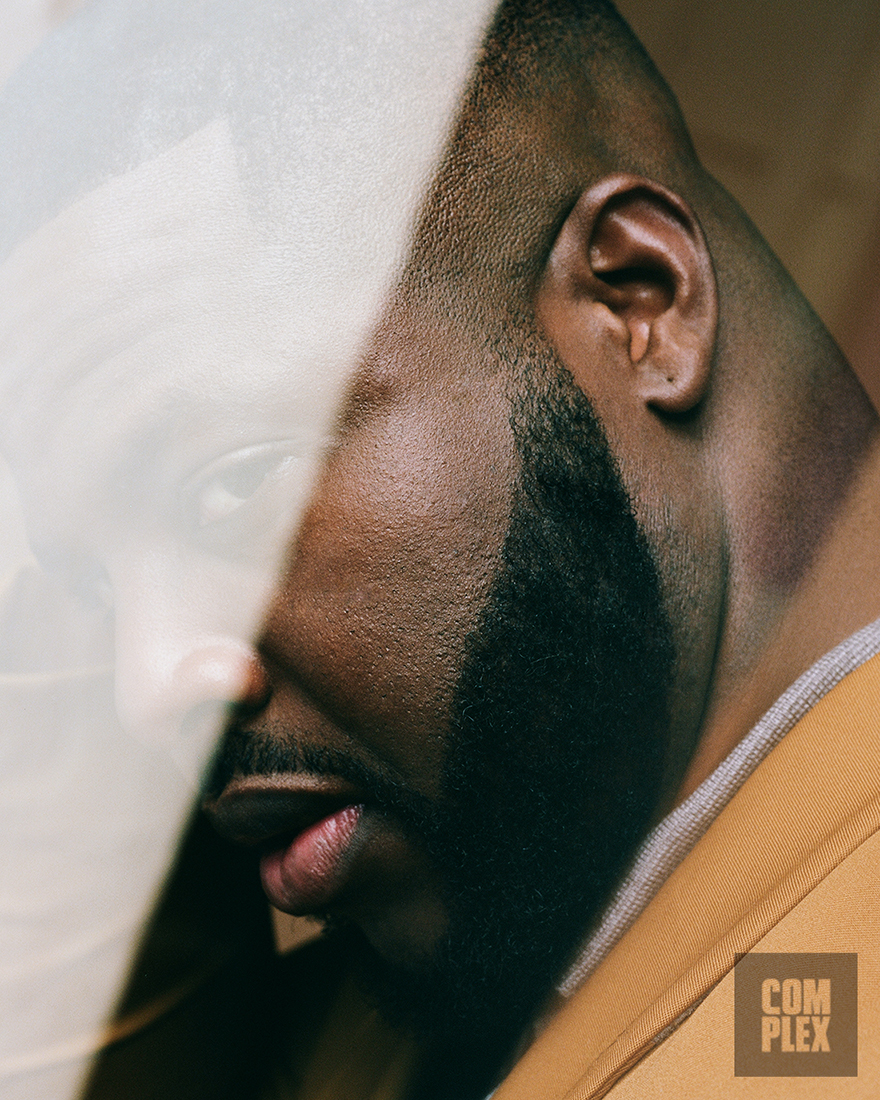
Winston offers up an interesting read on Gabe and Us itself. “Gabe is just, to me, the epitome of privilege. And that was also his function for me in the film. He is the living epitome of privilege.”
That’s one of those comments that, honestly, could be taken lightly if Duke weren’t speaking about a Jordan Peele film. “I think it’s a lot about cultures of privilege,” Duke explains. “What I hope people take away [from Us] is a questioning of how they themselves participate in cultures of privilege. How culpable are you in the propagation of [and] in the sustenance of these cultures? And I think the other side of the movie is gonna challenge people to then ask other questions around those ones. Those are the big questions I want people to start wondering about.”
Duke himself is hardly oblivious to questions like those. He’s also deeply conscious of his roots in Argyle, Trinidad and Tobago, where he lived until he was 9 and his family moved to New York. “It’s really important to give my community an opportunity to feel like they have an impact on an industry that they’re not in proximity to. That’s a thing where we consume so much,” he says, citing the popularity of the Fast and the Furious franchise among young people on the island. “They’re drag racing on the streets...when there’s only one lane going and one lane coming. They’re being deeply influenced, yet they don’t have a lot of the influence in this industry. So when they have a person from their community who they raised, who they fed cassava and dasheen to, and sole fish, they feel like, ‘You know what? At the end of the day, we made that man, too.’”
“Gabe is just, to me, the epitome of privilege. And that was also his function for me in the film. He is the living epitome of privilege.”
The actor has also partnered with United Nations’ HeForShe initiative, a project promoting gender equality on a global scale. In this role, Winston—who was raised by a single mother—aims to address toxic masculinity by making “a conscious effort as a man to do the opposite, to dismantle, to deprogram yourself,” he says. “It’s up to every man to start having these conversations, to understand their privilege and use that privilege to be more of a listener than a speaker. To speak to other men about what it means and how it manifests, because we live in a world where men listen to other men more than to the voices of women.”
On screen, Jordan Peele’s work gives voice to another group that goes unheard: black people. While Peele noted that it was important that a black family be at the center of Us, it is not a film about race. Duke agrees, but also points out that race is always the focus when you share his pigmentation. “Because of how highly politicized our skin is, there’s no such thing, in my opinion, as something that doesn’t have to do with race, from the ordinary and mundane to the hyper-realized and stylized.”
Duke doubles down on this statement within the context of the film. “This movie isn't explicitly about race, right? So I don’t have to lean into this character being defined by his race, but this character does know that he’s a black man. And as a result of being in proximity, or out of proximity, to that concept, how does that manifest in his relationships to himself, his loved ones, and the world around him? As a result, it's always about it. So whether your character, or the people you’re depicting, is a Black Panther, or you're doing Uncle Tom’s Cabin, it’s always about race.”
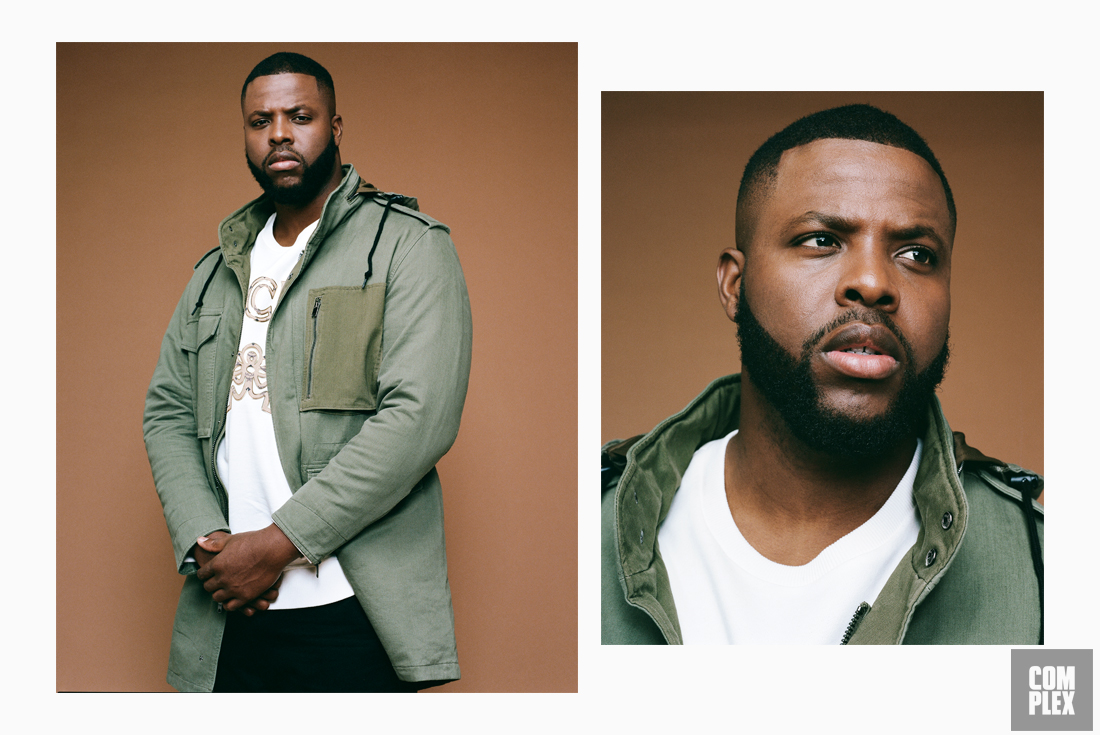
Maybe the genius of Winston Duke isn’t that he fell into a chance meeting with Jordan Peele that signaled the next phase of his career. Maybe his real strong suit, aside from being the grounded, dynamic black voice we need in today’s Hollywood, is that he’s acutely aware of the circumstances around him. Maybe it’s just that he’s been ready to seize the moment. It’s easy to forget that we’re truthfully at the beginning of his story. Sure, he’s put in the hours onstage and screen, charting an encouraging path for those walking in his footsteps, but in terms of being seen? Winston’s only just begun.
“I'm taking opportunities,” Duke says. “I’m trying to build a legacy. I’m not afraid to say I’m obsessed with legacy. And, essentially, I’m trying to live in my present the way I would like to be remembered in the future.”
